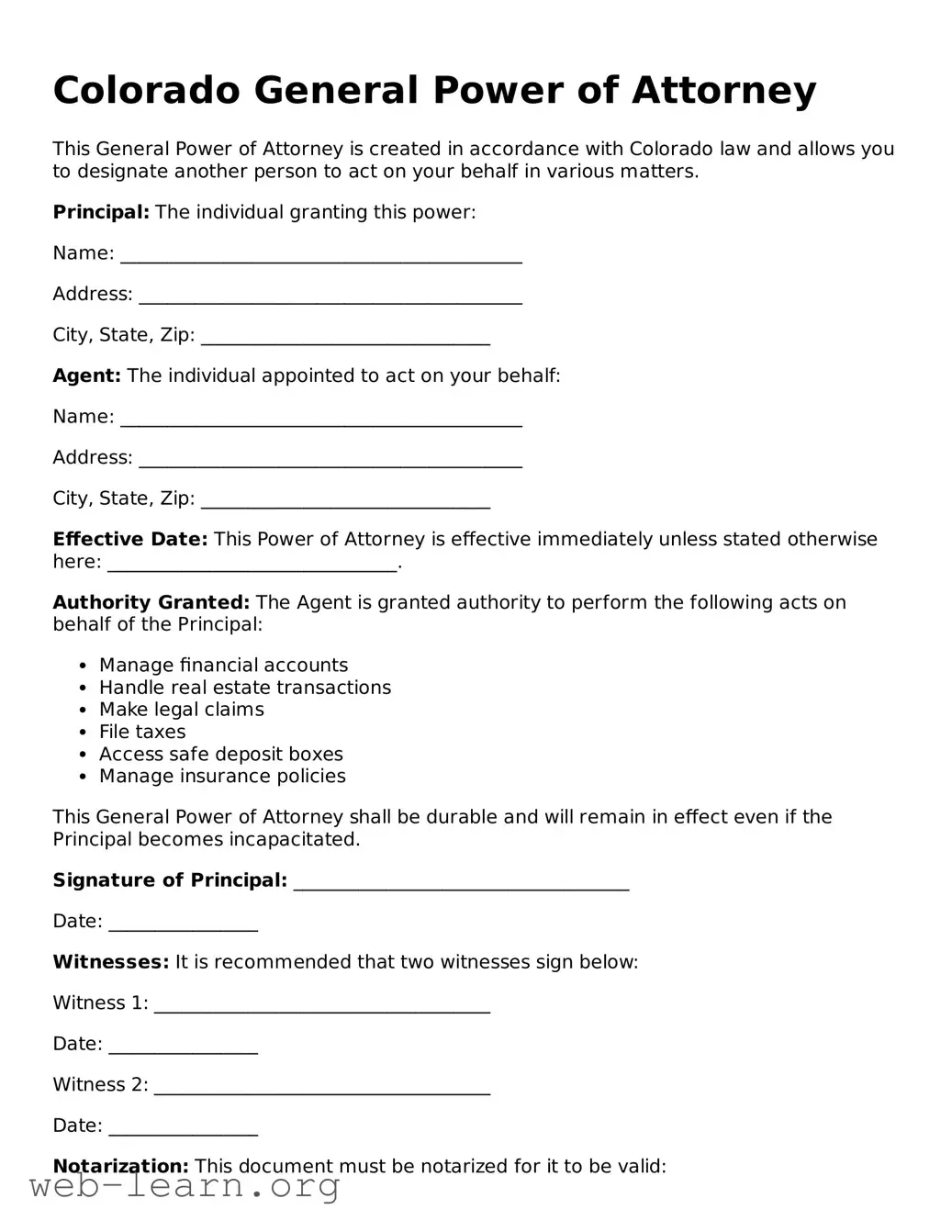Colorado General Power of Attorney
This General Power of Attorney is created in accordance with Colorado law and allows you to designate another person to act on your behalf in various matters.
Principal: The individual granting this power:
Name: ___________________________________________
Address: _________________________________________
City, State, Zip: _______________________________
Agent: The individual appointed to act on your behalf:
Name: ___________________________________________
Address: _________________________________________
City, State, Zip: _______________________________
Effective Date: This Power of Attorney is effective immediately unless stated otherwise here: _______________________________.
Authority Granted: The Agent is granted authority to perform the following acts on behalf of the Principal:
- Manage financial accounts
- Handle real estate transactions
- Make legal claims
- File taxes
- Access safe deposit boxes
- Manage insurance policies
This General Power of Attorney shall be durable and will remain in effect even if the Principal becomes incapacitated.
Signature of Principal: ____________________________________
Date: ________________
Witnesses: It is recommended that two witnesses sign below:
Witness 1: ____________________________________
Date: ________________
Witness 2: ____________________________________
Date: ________________
Notarization: This document must be notarized for it to be valid:
State of Colorado
County of ________________
Subscribed and sworn to before me on this _____ day of ____________, 20__.
Notary Public: ____________________________________
My commission expires: ________________
